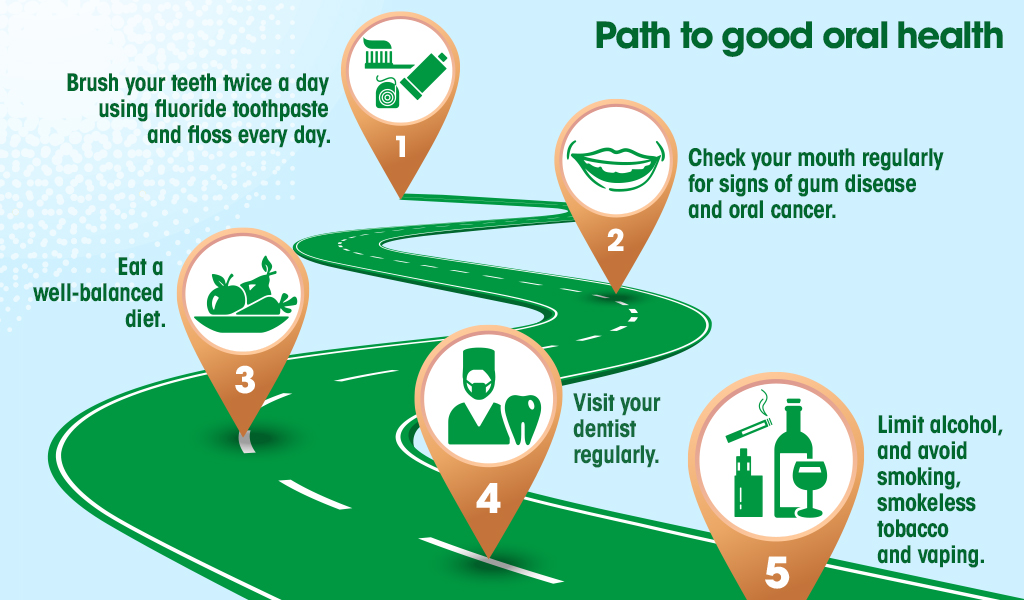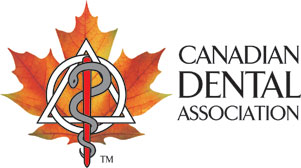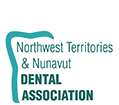
Join us in celebrating National Oral Health Month and helping millions across the country have a healthier smile! This month, we’re celebrating the nation’s largest oral health campaign to raise awareness, improve access to oral health care and create a healthier, brighter future for all people living in Canada.
Why National Oral Health Month matters
National Oral Health Month is an important time to raise awareness about the importance of maintaining good oral health and its connection to overall well-being. Healthy teeth and gums are not only essential for a confident smile, but also play a key role in preventing chronic disease.
By educating Canadians about proper oral hygiene, regular dental visits and early detection of potential problems, National Oral Health Month encourages people to take proactive steps in safeguarding their health. Every Canadian deserves access to affordable oral health care. This April, help us spread the message: Brush, floss, eat well and visit your dentist regularly. Find out more about what CDA is doing this National Oral Health Month.
Download our oral health basics checklist
Oral health basics for a healthy life
Oral health is a key component of overall well-being, and it starts with simple, consistent habits: brushing twice daily, flossing, eating a balanced diet and visiting your dentist regularly. A strong daily routine at home lays the foundation for a healthy smile that lasts a lifetime. These small actions have a big impact, and your dentist plays a key role in catching issues early and keeping your teeth and gums in top condition. No matter your age—whether 5, 25, 55 or 75—prioritizing the basics of oral care helps protect both your smile and your overall health. Learn more about oral health basics, risk factors and best practices for good oral hygiene.

Protect your smile, skip the fads
DIY trends and social media “hacks” may promise quick results but often lead to lasting damage. Instead of trusting the latest fad, rely on your dentist for guidance. Healthy smiles don’t need shortcuts—simple habits like brushing with fluoride toothpaste, flossing daily, eating a balanced diet and drinking water are effective and proven ways to maintain oral health. At CDA, we emphasize practices grounded in science, not viral trends, to ensure your smile stays strong and healthy. Fads will fade, but a healthy smile is always in style.
Choosing Products with the CDA Seal
Purchasing dental products can be overwhelming, with so many options to choose from. To take the guesswork out of shopping, look for products with the CDA Seal. The Seal verifies that oral health benefit claims made by manufacturers are supported by scientific evidence. Trusted by dental professionals, products with the CDA Seal provide effective oral care. Whether you’re shopping for toothpaste, floss, mouthwash or other types of oral health products, the CDA Seal helps you make informed decisions for your smile. Look for the Seal on the packaging when shopping for products, or check out our list of products with the CDA Seal.

The importance of a team approach to dentistry
A team approach to oral health delivers results. Your dental health care team is dedicated to caring for your teeth, your mouth and your overall health. Each team member plays an important role, and with their combined expertise, they work together to maintain your oral health. Trust them to keep your smile healthy and bright, today and for years to come.

Supporting advocacy for better oral health
As the national voice for dentists, our mission is to promote oral health, support our members and advance the dental profession. Access to oral health care is essential, and CDA is working to ensure that everyone in Canada receives the care they need, when they need it. By bridging the gap between your oral health team and the federal government, we’re advocating to help ensure that all Canadians can access affordable and timely oral health care. Discover more about CDA advocacy efforts.

How you can make an impact this National Oral Health Month
Every smile matters. You can play a part this National Oral Health Month by helping to raise awareness of the importance of good oral health. Get involved by practising good daily habits, educating friends and family and by sharing our posts on social media.
This month, we’re also hosting a National Oral Health Month - Healthy Habits Challenge on Instagram and Facebook to encourage Canadians to share how they practise good oral hygiene. When you see these posts, let us know in the comments how you take care of your smile.
Look for tips or information about dental care in Canada with these helpful resources:











